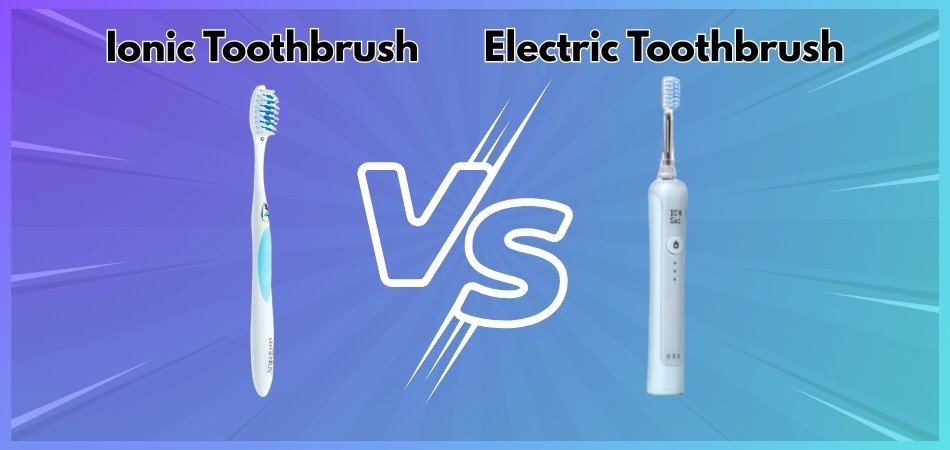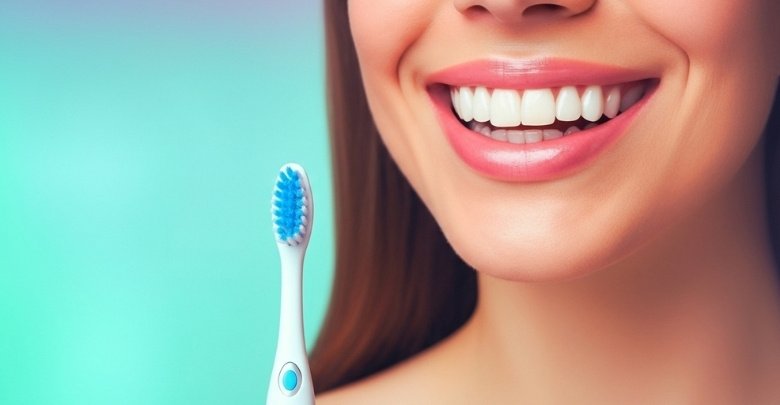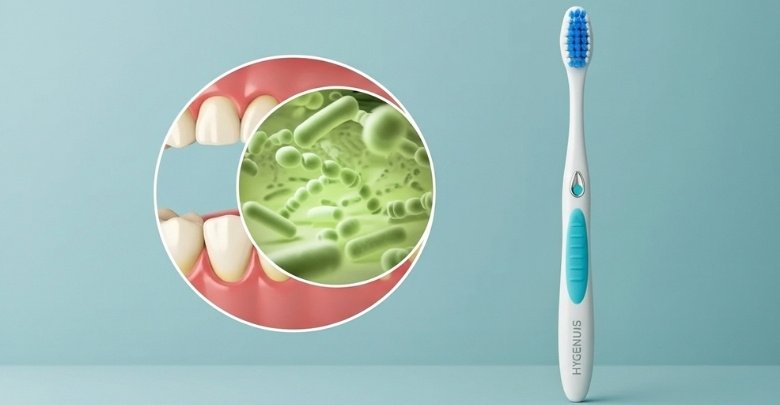Dental health is important for everyone, and the type of toothbrush you choose plays a big role in it. Over time, people have moved from simple manual brushes to more advanced options like electric and ionic toothbrushes. Many often compare both, and that is why the thought of Ionic Toothbrush Vs. Electric Toothbrush comes to mind.
An electric toothbrush uses fast vibrations or rotations to clean teeth, while an ionic toothbrush uses ion technology to loosen plaque. Electric brushes rely on strong movement and may sometimes cause gum irritation. Ionic brushes clean gently without much pressure, and they do not need batteries or charging.
Do you ever wonder which brush truly works better for daily use? Or are you curious about what makes them different in comfort, cleaning, and cost? If so, you will find all the important details about both toothbrushes explained clearly in this article.
Ionic Toothbrush Vs. Electric Toothbrush
Brushing teeth is something we all do every day, yet the brush we use makes a real difference. Ionic toothbrushes and electric toothbrushes are often compared because both promise better cleaning. Each has its own design, advantages, and drawbacks that make it stand out. Here we explore them closely and see which might suit you better.

Cleaning Method
An electric toothbrush works by using vibration or rotation to remove plaque and food stuck between teeth. The constant movement gives a strong cleaning feel, but it can be rough if used with too much pressure. Ionic toothbrushes, on the other hand, rely on ion technology to loosen plaque bonds. Instead of scrubbing hard, they help lift plaque away gently during normal brushing.
This makes an ionic toothbrush less dependent on pressure and more on its science-based approach. It can clean effectively without tiring your hands or irritating your gums. Electric brushes need proper technique to avoid pressing too hard and hurting enamel. With ionic brushes, you brush the same way but get more gentle results.
Power and Maintenance
Electric toothbrushes need charging or battery replacements to keep working properly. They come with motors and sometimes apps, which can feel like extra maintenance. Ionic toothbrushes do not need batteries or charging, which makes them more convenient. They activate when you hold them and are ready instantly.
The lack of charging makes ionic brushes travel-friendly and easy for everyday use. Electric brushes require chargers, adapters, and sometimes even special cases. If you forget to charge an electric one, you might miss out on brushing properly. With ionic brushes, you simply rinse and use again without worrying.
Comfort and Design
Electric toothbrushes are often bulkier because of their motors and batteries. They can feel heavy, especially during longer brushing sessions. Ionic toothbrushes are slim and light, often shaped like simple manual brushes. The bristles are soft, making them easier on sensitive gums.
Holding an ionic brush feels more natural, especially for people used to manual brushes. The smooth handle and one-piece design add comfort. Electric brushes may feel powerful, but can also cause hand fatigue after repeated use. Ionic brushes focus on simplicity, giving a calm brushing experience.
Effectiveness on Plaque and Gums
Both toothbrushes remove plaque, but they do so differently. Electric brushes scrub away buildup quickly with strong mechanical motion. Ionic brushes use negative ions to break plaque’s bond with teeth, which explains the clear advantages of ionic toothbrush technology. This can be helpful for people with sore or bleeding gums.
Users often notice gums stay calmer when using ionic brushes. Less irritation means healthier gums over time, with fewer bleeding spots. Electric brushes, if pressed too hard, can cause gum soreness. For a gentler clean, ionic brushes often feel safer and more comfortable.
Cost and Accessibility
Electric toothbrushes usually cost more, especially with their charging bases and replacement heads. Brands often sell them in stores with wide availability. Ionic toothbrushes are usually cheaper, though replacement heads may only be found online. Still, the upfront price is often less than an electric model.
If you want a brush that feels advanced without costing too much, ionic brushes are a solid choice. Electric brushes provide extra power but come with higher expenses. People often spend more on replacement heads and chargers for electric ones. With ionic brushes, you save time, money, and effort.
How Long Does an Ionic Toothbrush Last?
Durability is one of the strongest points of an ionic toothbrush, making it a reliable option for daily use. The brush body is designed to last for years without weakening or breaking easily. Unlike many electric options, there are no moving parts that wear down quickly.
Brush heads, however, still need replacing every three months to maintain effective cleaning and hygiene. Worn bristles lose their cleaning ability and may irritate gums. Changing heads regularly keeps the toothbrush working well and ensures a fresh brushing experience each time.
The lack of a battery helps extend the overall lifespan, as nothing inside needs charging or replacement. This simple design makes it low-maintenance, long-lasting, and easy to travel with. Many users in the Hygenius ionic toothbrush review highlighted its ability to stay dependable without the usual problems of electric models.
Who Should Benefit From Using an Ionic Toothbrush?
Taking care of teeth is not just about brushing daily but also about choosing the right type of toothbrush. Many people are turning to ionic toothbrushes because they offer gentle yet effective cleaning without being too complicated. If you are curious about who can really benefit from using one, keep reading because the details below explain it all.

Sensitive Gums
People with sensitive gums often struggle with hard bristles and strong vibrations. Ionic toothbrushes use soft bristles that don’t poke or scratch. The gentle cleaning style helps reduce bleeding and soreness. Regular use can keep gums calmer and healthier.
Frequent Travelers
Travelers like brushes that don’t require charging or batteries. Ionic toothbrushes are light, slim, and always ready for use. They easily fit into small travel bags. No cords or chargers make them a hassle-free choice for people always on the go.
Manual Brush Users
Some people never like the feel of buzzing electric brushes. For them, ionic toothbrushes provide an easy upgrade without feeling strange. The handle feels like a manual brush, but cleans more effectively. This keeps the experience familiar while still improving results.
Teens and Adults
Older teens and adults who brush regularly can benefit most. The design is simple enough for anyone to use correctly. With no buttons or settings, brushing feels straightforward. The extra cleaning support helps keep smiles fresher every day.
Busy Lifestyles
People with busy schedules want tools that require little effort. Ionic toothbrushes do not need charging or app connections. They can be picked up anytime for a quick, complete clean. Less hassle means more consistency in daily brushing.
People With Dental Work
Fillings, crowns, or braces can make brushing tricky. Ionic toothbrushes clean gently without extra force that may cause damage. Soft bristles move smoothly around dental work. This makes them safe and reliable for people with these needs.
Cost-conscious Users
Electric toothbrushes can be expensive with constant replacement costs. Ionic toothbrushes are often more affordable and still deliver good results. Replacement heads are simple and don’t require special tools. This makes them budget-friendly without lowering quality.
Do You Need to Prepare Much to Use an Ionic Toothbrush?
No, you do not need to prepare much to use an ionic toothbrush in your daily brushing routine. These brushes are designed to be simple and ready whenever needed. There is no setup, no charging, and no batteries required. You just hold it, and it starts working naturally.
The only part that requires attention is the brush head, which should be replaced every three months for the best cleaning. Worn bristles are less effective and may cause irritation if not changed in time. By keeping your head fresh, you make sure your teeth stay clean. Brushing feels smoother because using an Ionic Toothbrush requires almost no effort and very little adjustment to your regular routine.
Durability is one more reason why preparation is not necessary before use. Since the toothbrush does not rely on electricity, there is nothing inside that fails quickly. The slim handle and one-piece design also add to its lasting build. This makes it reliable for years without extra effort.
Pros and Cons of Electric Toothbrushes
Brushing daily is important for healthy teeth, and many people use electric toothbrushes for a deeper clean. These brushes are popular because they combine power with convenience. Still, like everything else, they have both positives and negatives worth noting.
Pros
- Better Plaque Removal: Electric toothbrushes remove more plaque than manual brushes because the vibrating or rotating heads reach tough spots effectively.
- Ease of Use: The automatic movement reduces effort, making brushing easier for kids, older adults, or people with limited hand movement.
- Built-in Timers: Many electric models include timers that help users brush for the dentist-recommended two minutes every session.
- Helpful for Braces: They clean around braces and other dental work better, reducing buildup that manual brushes often miss.
- Variety of Options: Electric brushes come with different settings, brush heads, and designs to match different needs and preferences.
Cons
- Higher Cost: Electric toothbrushes are more expensive than manual brushes, and replacement heads add to long-term costs.
- Battery or Charging: They need charging or batteries, and forgetting can leave you unable to brush properly.
- Bulky Design: Many models feel heavier and less comfortable compared to slim manual brushes.
- Potential Gum Irritation: Brushing too hard with electric models may cause gum soreness or enamel wear.
- Less Travel-friendly: Carrying chargers, batteries, or bulky cases makes them less convenient for frequent travelers.
What Do Dentists Recommend: Ionic or Electric?
Dentists usually recommend both types depending on the patient’s needs and dental conditions. Electric toothbrushes are often suggested for people with limited mobility. They clean thoroughly with less effort, making them effective for children, seniors, or anyone struggling with manual brushing. Dentists value their consistency in helping patients brush longer and more effectively.
Ionic toothbrushes are considered helpful for people with sensitive gums or frequent plaque buildup. Dentists highlight their gentle cleaning approach, which reduces irritation while still improving oral hygiene. They work without pressure or vibration, which means fewer chances of gum damage. Many dental professionals appreciate their ability to give a smooth, dentist-clean feeling daily.
Both toothbrushes have strengths, and dentists often advise choosing the one that matches personal needs and lifestyle. Those seeking powerful cleaning and extra features may prefer electric models. People wanting simplicity, low maintenance, and gentler brushing can benefit more from ionic ones. In the end, dentists emphasize that proper technique and consistency matter most for healthy teeth and gums.
How Do You Know Which Toothbrush Is Better for You?
Choosing a toothbrush may seem simple, but the right one can change how clean and healthy your mouth feels. Different types offer different benefits, and finding what works best often depends on your needs. If you are wondering how to decide, keep reading because the details below explain it all.

Cleaning Style
Every toothbrush has its own way of cleaning teeth. Some rely on vibrations, while others use ion technology or simple bristles. Think about how your teeth respond after brushing. The best option should leave your mouth feeling smooth and fresh.
Gum Comfort
Your gums are just as important as your teeth. Rough brushes can hurt them or make them bleed. Softer bristles are better if your gums feel sensitive often. Comfort while brushing is a big sign of the right toothbrush.
Ease of Use
Some brushes are light and simple, while others come with settings and features. Consider how much effort you want daily. A heavy, complicated brush may feel annoying over time. Simple designs usually stay easier for everyday use.
Durability
Not every brush lasts the same. Electric models may need charging or batteries, while others last longer without power. If you want something reliable, durability matters. Long-lasting brushes save time and effort in the long run.
Cost Factor
Prices can vary a lot between toothbrushes. Some cost more because of features like timers or chargers. Others stay budget-friendly with replaceable heads. Always balance what you spend with the results you actually get.
Travel Needs
If you move around a lot, portability becomes important. Some brushes need bulky chargers and cases. Others are slim and easy to carry anywhere. A travel-friendly design saves space and avoids unnecessary hassle.
Personal Preference
Ultimately, your comfort and habits matter most. Some people love powerful brushing, while others prefer a quiet, gentle feel. What feels right for you will be best. Choosing a toothbrush should match your lifestyle and needs.
Frequently Asked Questions
Finding the right toothbrush often brings up many questions. People want to know how ionic and electric toothbrushes differ in real-life use. To make it easy, here are some common questions with clear answers that cover things not already explained.
Can Ionic Toothbrushes Be Used Without Toothpaste?
Yes, ionic toothbrushes can be used without toothpaste because they rely on ion technology to loosen plaque. However, many people prefer using toothpaste for freshness and added protection. Both ways give a clean feeling and help maintain daily oral hygiene.
Are Electric Toothbrushes Suitable for Children?
Electric toothbrushes can be suitable for children if chosen carefully. Dentists often recommend kid-friendly versions with smaller heads and softer bristles. Parents should supervise brushing, as children might apply too much pressure and cause gum irritation without realizing it.
What Makes Electric Toothbrushes More Powerful?
Electric toothbrushes rely on motor-driven movements that scrub and vibrate rapidly. This creates stronger cleaning power than a manual brush. While effective, this intensity can sometimes be too harsh for sensitive gums or people with weaker enamel.
Why Do Ionic Toothbrushes Not Need Charging?
Ionic toothbrushes work with natural energy from touch and light, so there’s no battery or motor inside. This simple design reduces maintenance and avoids breakdowns. The lack of charging makes them more reliable for long-term daily use.
How Often Should Electric Toothbrush Motors Be Replaced?
The motor itself rarely needs replacing unless it fails completely. Instead, the brush heads require regular changes every three months. If the motor weakens over the years, users often find replacing the whole toothbrush handle more practical.
Which Toothbrush Is More Travel-friendly?
Ionic toothbrushes win for travel convenience since they don’t need chargers or bulky cases. They’re slim and light, fitting into small bags. Electric toothbrushes require cords, adapters, or charging bases, which makes traveling with them a bit harder.
How Do Ionic Brushes Help With Morning Breath?
Morning breath comes from bacteria and plaque buildup overnight. Ionic brushes help by loosening bacteria-filled plaque and reducing buildup. Users often notice fresher breath lasting longer throughout the day after switching to ionic cleaning.
Final Thoughts
Good dental care depends on small choices, and the toothbrush you pick is one of the most important ones. Both ionic and electric toothbrushes have their own strengths, designed to help people with different needs. Choosing wisely can make brushing easier and more effective every day.
When looking at Ionic Toothbrush Vs. Electric Toothbrush, the differences stand out clearly. Electric brushes bring powerful cleaning, while ionic brushes focus on gentle yet lasting freshness. It is less about which one is perfect and more about which one fits your lifestyle and comfort best.
In the long run, the right toothbrush is the one you will use regularly with ease. Whether you value strength, simplicity, or gentle care, both options can support healthier teeth and gums. Pick the one that feels right and enjoy the benefits of cleaner, fresher brushing.






